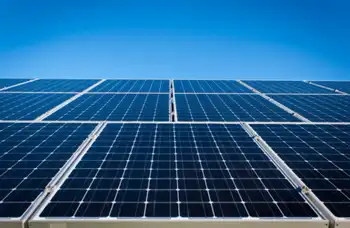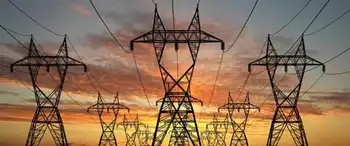Mumbai faces power deficit and premium-cost imports
By Industrial Info Resources
Protective Relay Training - Basic
Our customized live online or in‑person group training can be delivered to your staff at your location.

- Live Online
- 12 hours Instructor-led
- Group Training Available
The city's deficit of 650 MW is being bridged by purchasing power from surplus wherever available elsewhere in the country at a rate of nearly [US] 21 cents per kilowatt-hour (kWh) of electricity.
The sudden spike in Mumbai's power consumption is not an unprecedented phenomenon. The city has routinely witnessed sudden surges in power consumption in the month of October as temperatures after monsoon seasons end. Furthermore, there has been a constant expansion in the suburbs in addition to the new offices and malls springing up in the central regions, constantly adding to the power requirement at an annual rate of 5%. Power generation in the city has not kept pace with the growing demand.
Mumbai's power requirements are met by Tata Power Company Limited and Reliance Energy Limited (REL), which generate 1,777 MW and 500 MW of power, respectively. Tata Power's 180-MW generating unit in Trombay is currently offline for maintenance and scheduled repairs. This has brought down the city's power supply to 2,100 MW.
Tata Power, REL and the BrihanMumbai Electricity Supply and Transportation Undertaking are working to stem competition among local utilities in the purchase of additional power for Mumbai. REL is managing the present power crisis in the city. Based on the peak demand of 2,715 MW recorded in October 2007, the firm has reportedly firmed up 650 MW from external sources. However, demand for surplus power from the power-starved western and northern regions of the country has compelled REL to purchase electricity at a huge premium. The gap between supply and demand is further expected to widen during the festival of Diwali in the last week of October.
REL is purchasing power at a rate of about [US] 19 cents per kWh whereas power generated locally costs about [US] 5 cents per unit. Power utilities are expected to arrive at an average price based on the cost of power procured from external sources and that of domestically produced power. This average cost would be passed on the consumer.
Earlier this year, the Maharashtra Electricity Regulatory Commission (MERC) had given its consent to power companies to procure surplus power from other regions at a premium and pass on the average price to the consumers.
Mumbai has long been insulated from the power crisis that has been plaguing other urban areas of Maharashtra that have been enduring load shedding to shield the city from a power deficit. It was only in April 2005 that the MERC issued a landmark order for a more equitable distribution of energy conservation efforts.
The order decreed that consumers using over 500 kWh of electricity in a month would be charged an additional [US] 2 cents for every kWh consumed in excess of 80% of their consumption in the corresponding period of the previous year. The MERC also began to aggressively pursue other measures such as imposing a ban on illumination of hoardings during peak hours, stepping up purchase of power from the northeastern grid, and promoting captive power generation for industrial use.
Tata Power is considering expanding its power generation network in Mumbai. In July, the firm obtained consent from the Supreme Court of India to supply power to retail consumers in the city who have a requirement of 1,000 kWh or less. Suzlon Energy plans to develop India's first offshore wind power station near the Bandra-Worli Sealink at an investment of about $10.4 million to provide 6 MW of power to civic offices.
The Municipal Corporation of Greater Mumbai is constructing a dam on the Vaitarna River in Thane near Mumbai and plans to develop a hydroelectric power project at the site at an estimated cost of $21 million. However, this would commence only after 2011 when construction of the dam is scheduled to be completed.











